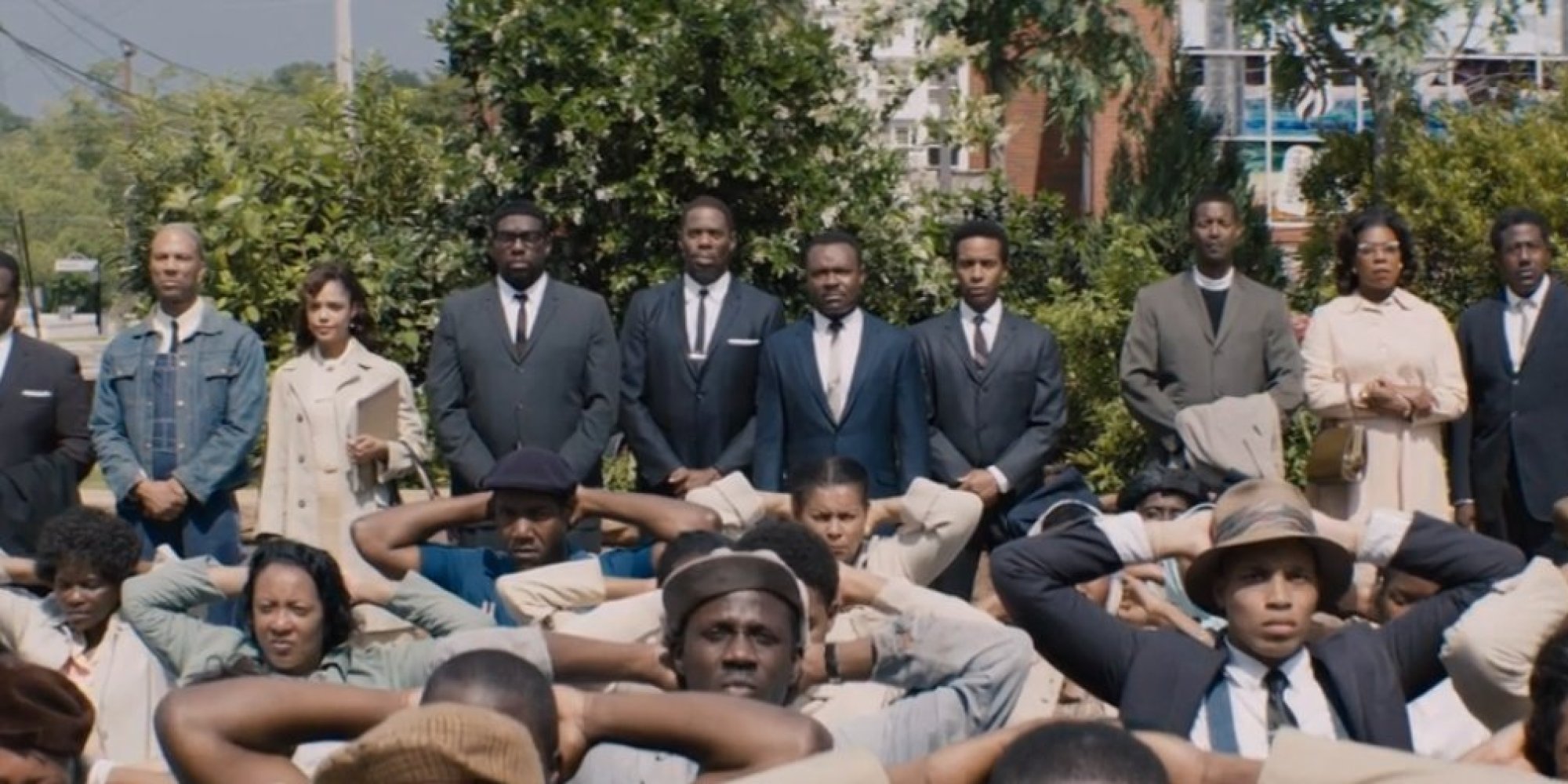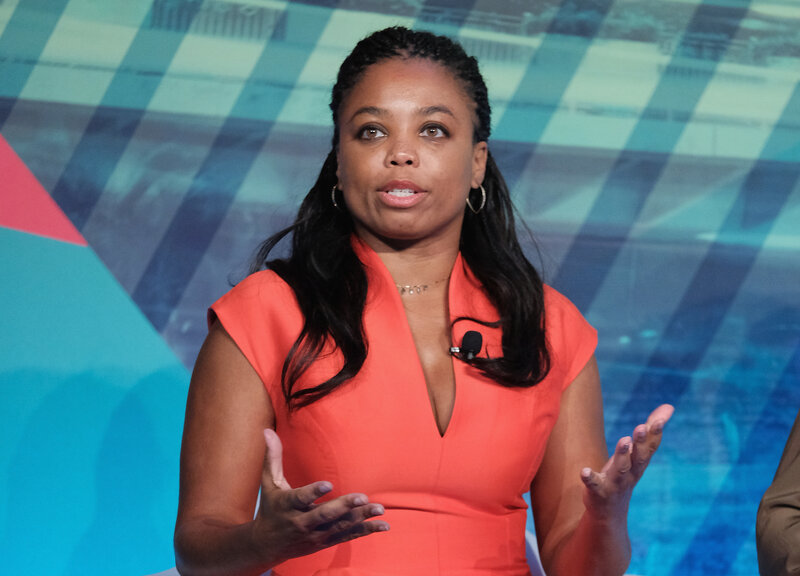By now we’re sure you’ve heard about Selma starring David Oyelowo, Carmen Ejogo, Tim Roth, Andre Holland Oprah Winfrey, Common, Tom Wilkinson and an all-star cast so extensive that space permits us from mentioning them all. The ads have been running constantly, the director and stars have been appearing on all the news shows and the digital world is aflame with all of the news sites and social media buzzing about the highly anticipated offering. Hollywood is pushing this one really hard. It has been my feeling that when this happens the content of said cinematic offering is usually not all that people are making it out to be. Over the past few years, movie buffs of African descent have been split on such historical dramas as The Butler, Twelve Years a Slave and Mandela.
Though each of the aforementioned films garnered major critical acclaim, many in the African American community shied away from patronage of these films because of the belief that they showed Black folks in a less than flattering light; usually docile, naïve and overly forgiving in light of overwhelming brutality. With a film touting a portion of the life of Dr. Martin Luther King, Jr. it was widely believed Selma would feature more of the same.
But that is certainly not the case.

Selma tells the story of Dr. Martin Luther King, Jr’s efforts to obtain voting rights for Blacks in the South over a three month span in Selma, Alabama in 1965 and comes to a crescendo when King leads protestors over the Edmond Pettis Bridge on their March to Montgomery. The final scene is one in which King stands triumphantly giving a speech at the Alabama state capitol on the very door step of the Confederate States of America. But director Ava DuVernay was tasked with showing the viewers exactly how he got there.
As an independent filmmaker, Ava DuVernay has gone on record many times to express her disdain for historical dramas, preferring instead to creating humanizing, contemporary images of African Americans. However, as fate would have it, she decided this story was one she was fated to tell.
“My mother is from Compton, California and my father is from Liles County Alabama,” said DuVernay at a function at Paramount. “Liles County is the county that they walked through on that five day March from Selma to Montgomery. Those backwoods with Klan snipers trying to pick off marchers and federal troops had to protect them, that was all going on in the back my father’s barn when he was growing up as a kid. This was always part of the family lore how they watched the marchers go by. For me, as an African American Studies major at UCLA, I always knew that King was a badass, but no one really talks about that. He’s been homogenized to a speech and a statue. But he was really a radical thinker and a badass brother.”
As is often the case with many of us born in the late 60s and who came of age in the early 90s, the true scope of what it is to be a non-violent protestor in the heyday of the civil rights movement was lost on many of us. For many, the active pursuit of the truth regarding the complexity and bravery of Dr. King and his followers only came through academic study.
“I’m from Compton so I’m a Black Panther fan,” explained Duvernay. “That’s like my thing. But as I studied Black history you get to really see how strategic those tactics were, how savvy they were, how many planes they were working on. Legislative, grass roots. It was fascinating. All we get is "I Have a Dream", which wasn’t really his best speech. So just the chance to show the nuances, the strategy, the failings and complexity of this brother. He was just a short Black guy from Atlanta who did extraordinary and amazing things with a group of brothers and sisters around him who really pushed the whole thing forward.”
“That was fascinating to me. I’d never seen it on film. So I pitched that idea to the producers when they asked if I was interested. I said I was but it would have to go like this. It’s a different take on Civil Rights because we’re not seeing any of the swagger of the non-violent civil rights movement in films about civil rights. There was a lot of swagger there, a lot of bravery, and beauty in a real radical way.”
Actor David Oyelowo stars in Selma in the role of Dr. King. When I asked him of how he prepared for such a monumental role, Oweyolo paused as he fought back tears before answering.

“The cost of the movement and the cost to him as an individual was my entry point to this,” he explained. “It cost him so much and I felt the only way to do him service was for it to cost me a lot. I was obsessive in my pursuit of the truth. That being the truth behind I Have a Dream, behind the icon. Who was he as a man? It served me personally being a Christian because that was a big part of who he was and that was central to his calling to do what he did. And the greatest attribute I think that we as human beings have is love. To me, love is sacrifice and he demonstrated that better than most. Of course, there were basic things. But, more important for me was being spiritually available to what it means to sacrifice a life you might have had with your family, knowing every day you left the front door that it might be your lasth because of the amount of hate that was out there for you, and deliberately not have anything be about the self. Lyndon Johnson wanted King to be a politician for obvious reasons but he felt he wouldn’t have been able to do what he did if there was anything about it that was self-seeking. They lived very frugal lives for that reason. All of that to say my entry point was the cost. I wanted every day to feel like I did everything I could to pay him tribute.”
Life is filled with unexpected coincidences. In the case of Selma, the coincidence was a tragic one. As the director was editing the film protestors were marching in Ferguson protesting the shooting death of Michael Brown, Jr. at the hands of Officer Darren Wilson. But was it a coincidence or a divine message instead?
“As it was happening I was in the editing room watching it go down,” said DuVernay. “The specs of what happened are so exact. A young brother is shot, in the film you see something similar happen. Everything around it is foul. We know what’s going on with the shooting. People mobilize around it and are trying to change laws, pass legislation, change the way things are. Troopers saying ‘This march will not continue. You are agitators.’ When the man on the bullhorn said the exact same thing that the man said in 1965 I was like ‘Word? There must be a book somewhere.’ The difference is that in 1965 there was leadership and organization. There was local leadership but there were several groups. It was just SCLC. There was SNCC, there was C.O.R.E. There were groups that people looked to as well as leaders in progressive thought that people looked to, followed and took action around. We don’t have it in a mass way.”
“I see a group like Dream Defenders and it gets me excited. But it’s not enough. Not enough of these nationally galvanizing voices that can really rally people around a cause. It happened and it worked. Because it happened everyone in this room can vote. Some of the things I take for granted, the film deconstructs how they actually came to be. They came to be because Black people and White people actually followed somebody and took a point of action. I look at Ferguson and it really sort of enlarges the idea of what happened. So many White people were King followers. Giving money, giving time. Marching as well. It’s interesting because it’s something that’s been homogenized and we’ve forgotten. I’m interested in seeing the conversation this sparks around the country after having gone through Ferguson and thinking that’s brand new. People are ‘This is fascinating’ and I’m like ‘It happens every ten years.’

For those that are unaware of her work and her disposition, Ava DuVernay is decidedly anti-status quo in her works and it was already a forgone conclusion that this wasn’t going to be your mother’s MLK film from the very beginning. After viewing this beautifully shot and wonderfully acted offering for myself I cannot help but agree with that assessment wholeheartedly.
“I said ‘I’m going to make this the type of civil rights movie I’d like to see.’ I think that it has texture, it has has nuance and it’s not dealing with the low hanging fruit that they want us to talk about all the time. It’s about the badasses, the strategy of how this changed lives and hopefully the memory of this might spark something now. Because we need it. We’ve always needed it. It’s nothing new. And maybe we don’t need the typical leadership where it’s just one person. Maybe in this new age it’s going to be a different way. But we need something that galvanizes us where these things aren’t Twitter movements where we hashtag it up and two weeks later you forget.”
While attending an event at Paramount Studios in New York I sat away from the crowd and simply observed as I often do. Seemingly out of nowhere, Ava walks up behind me and places her hand on my shoulder and I tell her what I think of the film. Still emotional over the images that flickered across the screen mere minutes prior to the conversation, I was at a loss of words to describe what I had seen. But she responded ‘Ricardo, I just want black people to like it.’ Well, I don’t know about other Black folks, but this Black man can tell you this is the best period piece based in the African American lexicon that I have seen since Malcolm X.
Yes, it’s been a long time.
I give Selma an A++ for great acting, cinematography, writing, wardrobe, film score and, of course, directing. Selma opens in theaters nationwide Friday, January 9, 2014.


